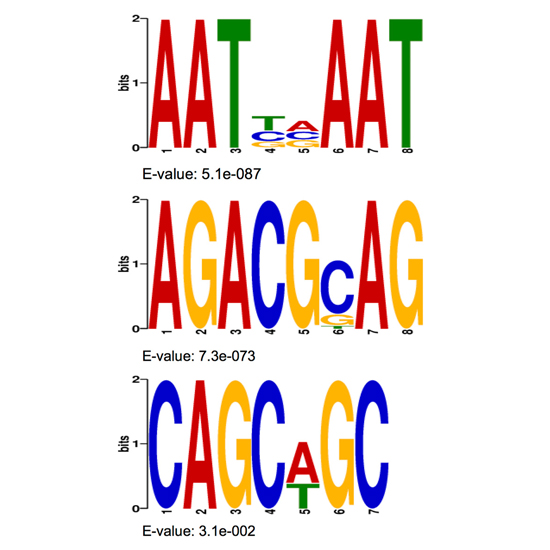Caenorhabditis elegans CES-1 Snail Represses pig-1 MELK Expression To Control Asymmetric Cell Division
01-Aug-2017
Genetics, vol. 206, no. 4, 2069-2084, https://doi.org/10.1534/genetics.117.202754
Genetics, online article
Snail-like transcription factors affect stem cell function through mechanisms that are incompletely understood. In the Caenorhabditis elegans neurosecretory motor neuron (NSM) neuroblast lineage, CES-1 Snail coordinates cell cycle progression and cell polarity to ensure the asymmetric division of the NSM neuroblast and the generation of two daughter cells of different sizes and fates. We have previously shown that CES-1 Snail controls cell cycle progression by repressing the expression of cdc-25.2 CDC25. However, the mechanism through which CES-1 Snail affects cell polarity has been elusive. Here, we systematically searched for direct targets of CES-1 Snail by genome-wide profiling of CES-1 Snail binding sites and identified >3000 potential CES-1 Snail target genes, including pig-1, the ortholog of the oncogene maternal embryonic leucine zipper kinase (MELK). Furthermore, we show that CES-1 Snail represses pig-1 MELK transcription in the NSM neuroblast lineage and that pig-1 MELK acts downstream of ces-1 Snail to cause the NSM neuroblast to divide asymmetrically by size and along the correct cell division axis. Based on our results we propose that by regulating the expression of the MELK gene, Snail-like transcription factors affect the ability of stem cells to divide asymmetrically and, hence, to self-renew. Furthermore, we speculate that the deregulation of MELK contributes to tumorigenesis by causing cells that normally divide asymmetrically to divide symmetrically instead.











